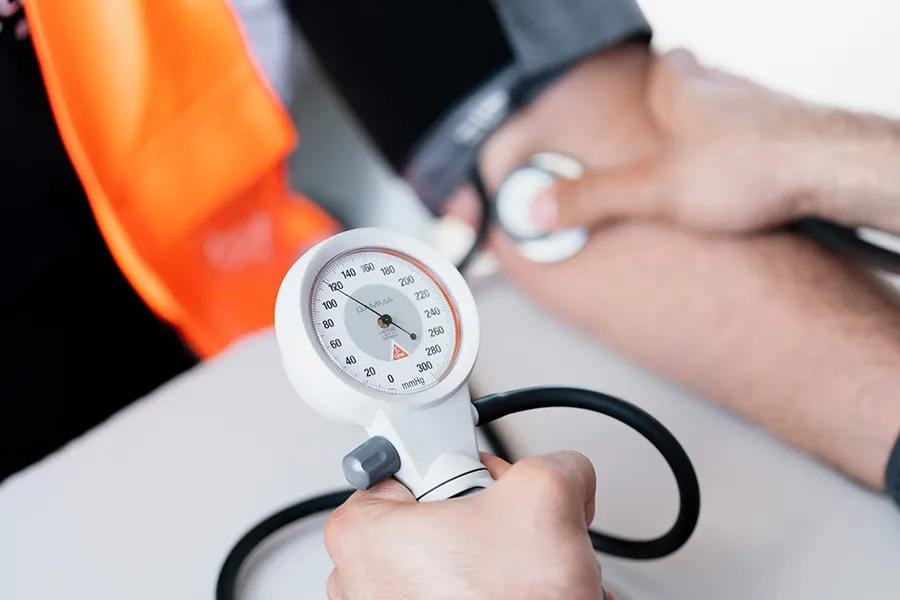HEALTH
Everything You Need to Know About Pre-Employment Medicals: A Complete Guide

Pre-employment medicals have become an essential part of the hiring process in many industries. These medical assessments ensure that new hires are fit for the role they’re about to undertake and help prevent workplace injuries and illnesses.
In this complete guide, we will explore what pre-employment medicals are, why they are important, and what to expect during the process.
What is a Pre-Employment Medical?
A pre-employment assessment is a health exam required by employers before hiring an employee. This medical evaluation is designed to determine if the candidate is physically and mentally capable of performing the duties associated with the job. It may include a range of tests depending on the nature of the work, from general health checks to more specific exams related to the position.
The pre-employment medical typically involves a series of assessments, such as a physical examination, blood tests, vision and hearing tests, drug and alcohol screenings, and psychological evaluations. The goal is to ensure that the individual is medically fit for the position they are applying for.
The Importance of Pre-Employment Medicals
Pre-employment medicals provide several benefits to both the employer and the employee. Here are some key reasons why pre-employment assessments are important:
1. Ensures Workplace Safety
Certain roles, particularly those in manual labor, construction, or healthcare, require employees to be in optimal health to avoid workplace injuries. Pre-employment medicals can identify potential health risks or pre-existing conditions that may impact a candidate’s ability to perform their job safely. By ensuring that employees are fit for the role, employers can reduce the risk of accidents and injuries in the workplace.
2. Compliance with Legal Requirements
In some industries, pre-employment medicals are a legal requirement to comply with health and safety regulations. For example, certain jobs, like driving or operating heavy machinery, may have strict medical standards that employees must meet. Employers must follow these regulations to ensure they’re providing a safe environment for their workers.
3. Reduces Absenteeism
When employees are fit for the job, they are less likely to call in sick or experience long-term health issues related to the work they are performing. Pre-employment assessments can help employers identify any underlying health conditions that might lead to absenteeism, allowing them to make informed decisions about whether the candidate is a good fit for the role.
4. Cost Savings
By ensuring that employees are medically capable of performing their job, companies can reduce healthcare costs and avoid the expenses related to worker’s compensation claims or long-term illnesses. Preventing workplace injuries before they happen helps businesses save money in the long run.
Types of Pre-Employment Medical Tests
The specific tests conducted during a pre-employment medical can vary depending on the job and industry. Some of the most common tests include:
1. General Health Assessment
A general physical exam will assess the candidate’s overall health and may include measurements such as height, weight, blood pressure, and heart rate. The doctor will also review the candidate’s medical history, including any previous illnesses or surgeries.
2. Vision and Hearing Tests
For certain roles that require visual acuity or good hearing, such as drivers or machinery operators, vision and hearing tests are essential to ensure the candidate is capable of performing the job safely.
3. Drug and Alcohol Screening
Some employers require candidates to undergo drug and alcohol testing to ensure they are fit to perform their duties without the risk of impairment. This is especially important in industries like transportation, construction, and healthcare.
4. Musculoskeletal Assessments
For physically demanding jobs, a musculoskeletal assessment may be conducted to evaluate the candidate’s strength, flexibility, and overall physical fitness. This test ensures that employees are capable of handling the physical demands of the role.
5. Psychological Evaluation
For positions that require high levels of mental focus, decision-making, or emotional stability, a psychological evaluation may be conducted. This may involve questionnaires or interviews to assess the candidate’s mental health and emotional resilience.
What to Expect During a Pre-Employment Medical
The pre-employment medical process typically takes place after you’ve been offered a job but before you start working. You’ll likely be asked to fill out a medical history form, detailing any previous illnesses, surgeries, medications, or allergies. Once the paperwork is complete, you will undergo a series of tests and assessments.
The results of your pre-employment medical will be shared with the employer, but only relevant information will be disclosed. If the assessment reveals any health concerns, the employer may request additional information or discuss potential accommodations to help you perform your job effectively.
Pre-employment medicals are an important step in ensuring that new hires are capable of performing their job safely and effectively. Through pre-employment assessments, employers can assess a candidate’s health, reduce the risk of workplace accidents, and ensure compliance with industry regulations. For employees, these assessments help identify any potential health risks before they become an issue, leading to better health outcomes and a safer work environment.
If you are a job seeker, understanding the importance of pre-employment medicals and the assessments involved can help you prepare for the process. And if you’re an employer, implementing pre-employment assessments can improve workplace safety, reduce absenteeism, and ultimately contribute to a healthier, more productive workforce.

University of Houston graduate with 5 years of blogging experience, excelling in content strategy, SEO, and audience engagement. Connect with me on LinkedIn.










